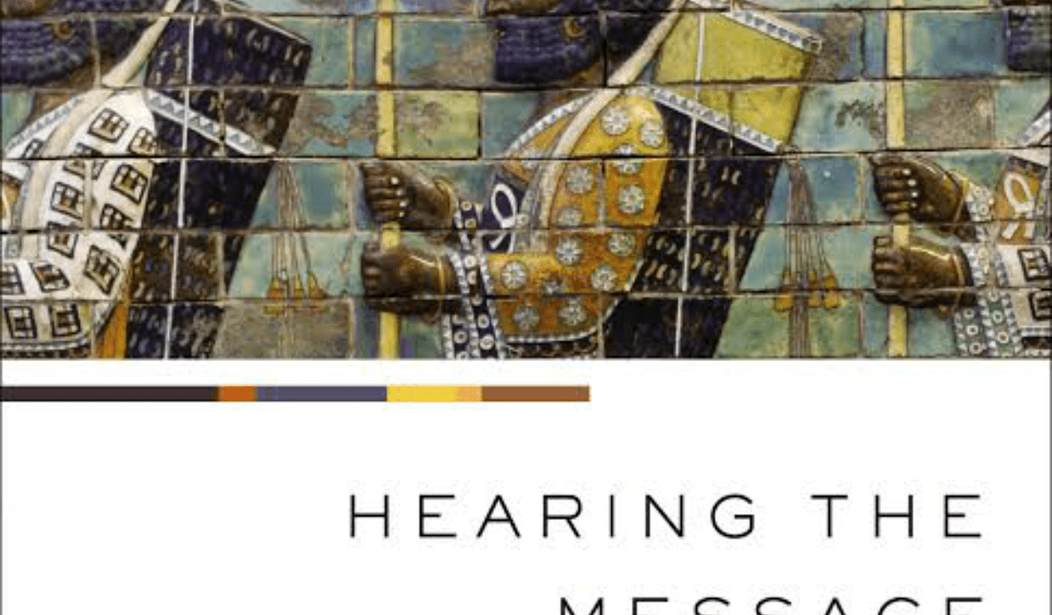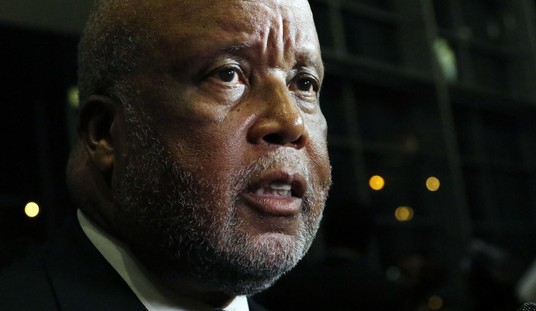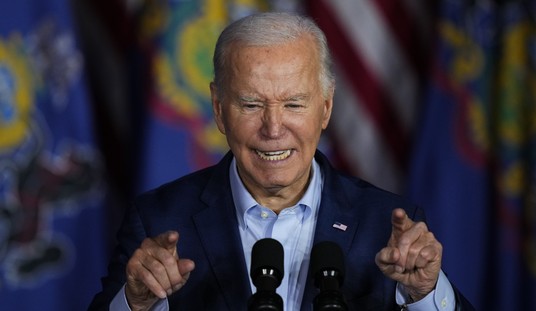Biblical Christians are under assault. An LGBT group has announced plans to target churches if they refuse to offer property for a homosexual wedding. Christian business owners have been fined and forced out of business for “discrimination” for refusing to partake in gay weddings. The mere anticipation of government intrusion has led to the closing of a Christian preschool.
Under such circumstances, some have called for The Benedict Option, a withdrawal into separate Christian communities to preserve the faith and its culture. But the Bible’s book of Daniel presents another option — a shining example of fealty to God while serving in exile, even under the very government which destroyed God’s temple.
The very book of Daniel is “a call to trust in the sovereignty of Yahweh the God of Israel in the midst of historical events that seemed to deny it.” Sound familiar? In his book Hearing the Message of Daniel: Sustaining Faith in Today’s World, Christopher J. H. Wright applies this prophetic book to the current struggles of Christians in the post-Christian West. His is a vital book for understanding what is really going on and how Christians should respond firmly and with reliance on God.
The book of Daniel takes place in the context of exile. Daniel is a young Jewish boy forcibly removed from his home and taken into the service of King Nebuchadnezzar of Babylon. But rather than complaining the whole time, Daniel and his three friends (Hananiah, Mishael, and Azariah) serve the king well.
Famously, the four rejected the rich foods presented to them, in order to preserve their cultural heritage. But Wright explains that they accepted a lot more. The four said “yes” to a pagan education, “riddled with all the features of polytheism,” and they even “got higher final results in their oral examinations than their Babylonian peers!” They said “yes” to a political career — even serving a country the prophets had railed against.
Finally, the four said “yes” to a change in their very names. This was no small thing: each of their original names had a connection to God (for example, Daniel means “God is judge”), and each of their new names was a reference to pagan gods. Wright emphasizes the culture shock by using his own name, which means “Christ-bearer.” What if the Indians forced him to change it to Krishna, that of a Hindu god? “Even if I had been willing, it would have felt horrible.”
The four Jews did not balk at any of this, and God gave them the strength to bear it. They did ask for a reprieve from the king’s fine food, however — perhaps because it would have been unclean by Levitical laws or because it would have symbolized loyalty to Babylon, Wright conjectures. Even in doing so, they were gracious, and found a way to ask without endangering their boss.
Wright argues that Daniel and his three friends were so accommodating because they had likely read Jeremiah 29 — the prophet Jeremiah’s letter to the exiles. In this letter, the prophet told the oppressed and exiled Jews, “seek the welfare of the city where I have sent you into exile, and pray to the Lord on its behalf, for in its welfare you will find your welfare” (Jer. 29:7). This led them to immerse themselves in pagan literature and culture, and to serve the government well.
Christians have long taken the advice in this letter to heart. Many young Christians memorize Jeremiah 29:11, “For I know the plans I have for you, declares the Lord, plans for welfare and not for evil, to give you a future and a hope.” Jeremiah wrote that specifically for the exiled Jews in Babylon, because God promised that after seventy years, Babylon would fall and the exiles would return.
Christians today often view the turmoil and evil of this fallen world as a new exile, to be ended with the Second Coming of Jesus Christ. When Christians are outright persecuted in other parts of the world, or even forced out of business in America, that is a subtle reminder that even though God allows wickedness and injustice to rule for a time, He remains sovereign.
The book of Daniel recounts God saving His servants from execution, fire, lions, and the toppling of governments. It also prophesies the return of the exiles — and the final rule of God in the ultimate end.
But God also rules in the evil world. Both Daniel and Jeremiah declare Nebuchadnezzar the servant of Yahweh, God of the Jews. Yes, the same Nebuchadnezzar who took Jerusalem by siege, killed the king’s children in front of his eyes before blinding him, broke down the wall, and demolished God’s temple. God gave Nebuchadnezzar power — but that power was limited. Indeed, in Daniel’s explanation of the king’s dream, a statue representing multiple human empires is destroyed by a boulder — “a picture of the ultimate failure of all human power and arrogant claims.”
This is another central message of the book of Daniel. While God called on the exiles to “seek the peace of the city,” they were never to worship it. Daniel 3 explains “Nebuchadnezzar’s plan … to produce some kind of imperial political unity by imposing a sacred ideology of the state itself — a national religion and culture — for official purposes.” When Shadrach, Meshach, and Abednego said no, they faced the fiery furnace.
This kind of nationalism is by no means unique to Babylon, although it rarely takes the form of forcing people to worship a statue of the king (as in this case). “The state is a human institution which seems to have a built-in tendency towards idolatry,” Wright argues. There are many state ideologies which end up persecuting Christians — Islamic governments (especially ISIS), Hindu nationalism in India, the atheist Communism of Central and Eastern Europe last century. Even American nationalism — and Western capitalist consumerism, which Wright refers to as an “idolatry” — can overstep its boundaries.
Daniel lived a long life, and served through many different administrations. He was very old when he faced the lion’s den, and very accomplished. As Wright notes, “We don’t know if he went around telling Babylonians the ‘gospel’ story of what God had done for Israel and summoning them to believe in the one true God. What we are told is that in his daily secular job he was the very best.”
Daniel remained faithful to God in a godless culture and society, and by doing his work faithfully, he rose to the top — and when envious wicked elites tried to find a way to blackmail him, the only weakness they could exploit was Daniel’s greatest strength, his reliance on God. And it was that very reliance which preserved the faithful man in his distress.
This faithfulness in adverse circumstances is an excellent model for Christians struggling with a godless culture today. When the government forces believers to violate their convictions on issues like traditional sexual morality, Christians should stand for their religious freedom, but they should also be blameless in their secular jobs. They should be graceful and accommodating, as much as possible.
Christians need not withdraw from society, Wright explains. Daniel shows that no matter how bad this world gets, God remains in control. There is another option besides the Benedict Option, and it is rooted in the Word of God. The Daniel option provides a blueprint for Christians in exile. It will never be easy, but God will provide.








Join the conversation as a VIP Member